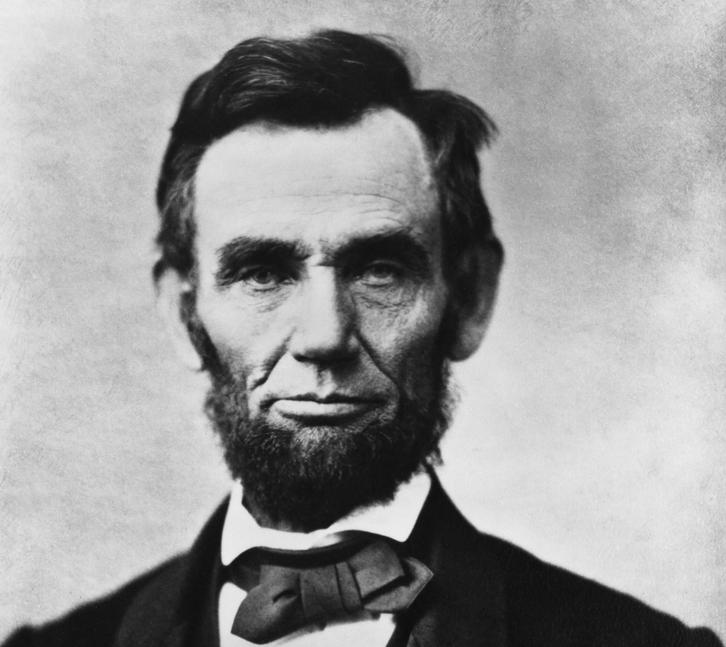by Steve Adubato, PhD
By most accounts, Abraham Lincoln was one of the great presidents in American history. While the movie "Lincoln," released in 2012, got significant praise, I especially enjoyed reading Pulitzer Prize-winning author Doris Kearns Goodwin’s book "Team of Rivals," one of the most comprehensive books about Lincoln and his extraordinary leadership ability.
Lincoln’s leadership traits have stood the test of time and, while not perfect as a leader, Abraham Lincoln demonstrated the following characteristics from which all of us can continue to learn:
Keep your enemies closer. Most politicians throughout American history have surrounded themselves with a team of allies to form an inner circle of protection. Lincoln did not see it that way. Rather, he was confident enough in himself to create an inner circle of his rivals who were his worst enemies at an earlier time. Some of these same men, particularly William Henry Seward (who was Lincoln’s main rival in 1860 and later became his secretary of state), wound up being one of his most trusted advisers. What a powerful leadership lesson. Too many leaders surround themselves with people they are close to on a personal level, or who have been part of their inner circle for years, who simply tell the leader what he or she wants to hear and are not secure enough to bring in other strong leaders, much less previous rivals. This myopic approach ensures that only certain points of view will be heard, which can have a negative impact on the quality of the decisions reached. But by turning to those who have a different point of view to help make decisions, as Lincoln did, it ensures a more balanced, more open-minded approach to leadership.
Connect through a common ground. Consider this passage from Kearns Goodwin’s book, which includes a combination of Lincoln’s extraordinary leadership traits: "His personal qualities enabled him to form friendships with men who had previously opposed him; to repair injured feelings that, left untended, might have escalated into permanent hostility; to assume responsibility for the failures of subordinates, to share credit with ease, and to learn from mistakes."
Kearns Goodwin’s book and other historical accounts of Lincoln are filled with examples of him consistently trying to find ways to find common ground with those whom opposed him. A great lesson; seek to find what you have in common with others—even if on the surface it appears to be nothing. Finding that common ground can allow a leader to work with others and accomplish important things.
Take responsibility. Lincoln demonstrated the Harry Truman leadership philosophy of "the buck stops here" on a regular basis. As I’ve said many times, too many leaders are caught up in playing the "blame game" when things go wrong, while Lincoln saw mistakes made by those on his team as ultimately his responsibility. We have seen countless examples of CEO’s and other leaders not accepting responsibility for something that has gone wrong in their organization. No matter if they were directly involved in a situation or not, they must step up, be a strong leader and take responsibility.
Be “self aware.” Lincoln was extremely "self aware," as Kearns Goodwin says, meaning he understood that he had the potential to have serious mood shifts. Like all leaders, he could get angry, but Lincoln had the uncanny ability to understand that the way he communicated his anger toward those around him was critical to his success. When Lincoln was particularly angry he had a habit of writing a letter to the person he was angry with and then setting it aside. When Lincoln did verbally communicate his anger, he would quickly try to resolve the situation, refusing to allow unresolved conflict to fester. A leader must first be a “leader of himself,” which requires not only the Lincolnesque self control described by Goodwin, but also a level of self awareness and yes, “emotional intelligence,” made famous by Daniel Goleman and my friend and colleague at Rutgers University, Maurice Elias. While emotional intelligence was not a term or concept in vogue in the 1860s, clearly Lincoln instinctively understood how his inner moods and emotions impacted his leadership style, which was critical to his success.
Don’t waiver in your principles. One of Lincoln’s other greatest leadership traits was his sense of integrity and his strong belief in his principles. Obviously he was willing to compromise. However, those around him could be confident his core principles would not change from day to day depending upon the circumstances around him or his perceived popularity at the time. Such leadership inspires the loyalty, dedication and confidence of those around you. Too often we hear about politicians and other leaders who “flip flop” on issues, depending on public opinion. True leaders stand firm and do not let outside influences change their core values.
Communicate with conviction. Lincoln’s communication skills were extraordinary and clearly a key to his success as a leader. He was not a slick or even a great public speaker. Further, Lincoln refused to speak in public without a prepared text. However, one of Lincoln’s greatest gifts as a leader was that most people believed that he believed what he was saying when he spoke. In many ways, that is where the expression "Honest Abe" came from. An enduring leadership lesson—when people believe that you believe, it speaks volumes about your ability as a leader to get them to follow you.
